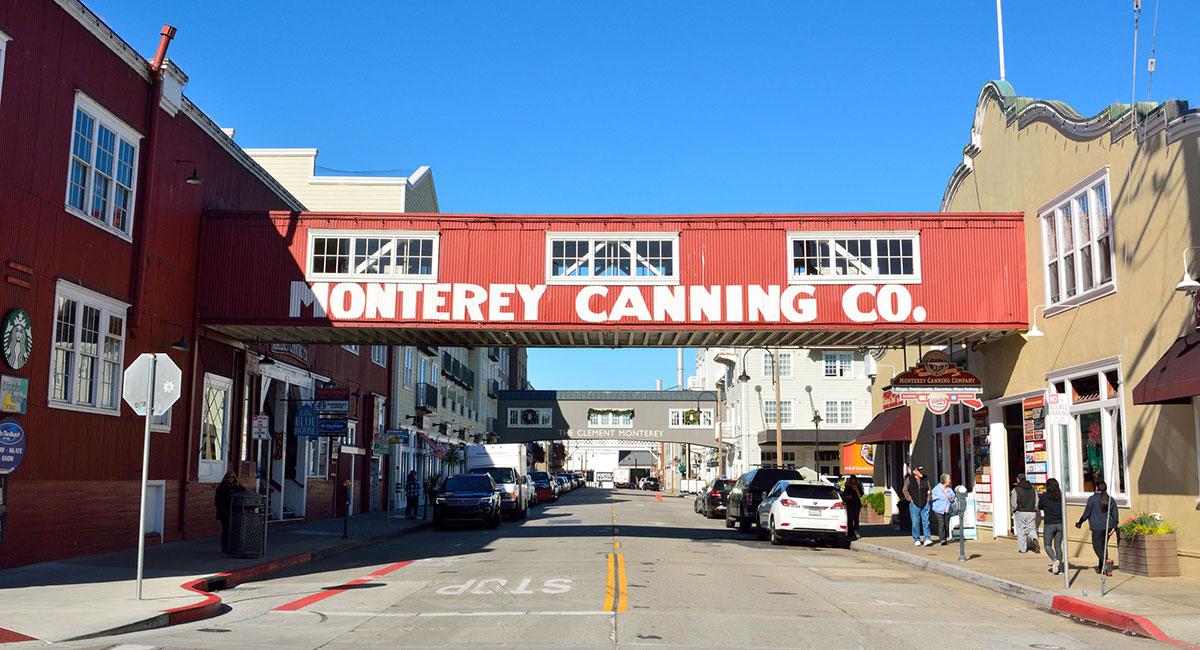In May I visited Monterey in California for a conference. Knowing that it is the heart of John Steinbeck country, I grabbed a beat-up copy of Travels With Charley a couple weeks before the trip. The book is a page turner and contains an interesting section that recounts Steinbeck’s homecoming. But it wasn’t at all what I expected.
I guess I was expecting the Steinbeck of The Grapes of Wrath. Lots of anger at capitalism, a story where every businessman—unlike the ones I’ve met—is mean. Instead of a Steinbeck who channels Karl Marx, I found a Steinbeck who channels another influential economist, Friedrich Hayek.
First a little background on both Hayek and Travels With Charley for those who are unfamiliar with them. Hayek, one of the most influential economists of the 20th century, is best known for The Road to Serfdom. Writing at the end of World War II, he warned that central planning inevitably leads to totalitarianism. Around the same time, he wrote an article, “The Use of Knowledge in Society,” which explained that if a central planner had complete knowledge of people’s preferences and the available means of production, he could be very efficient. However, Hayek noted, centralizing this knowledge is simply impossible. Instead, we live in a world of dispersed, incomplete knowledge, so individuals with these bits of knowledge—producers and consumers—can make far better decisions than any central planner ever could. Local knowledge—that’s the key insight of Hayek.
The premise of Travels With Charley is very Hayekian. Steinbeck realizes that he is out of touch with America: “I had not felt the country for twenty-five years.” He knew of the changes only from books and newspapers and had been writing about something he did not really know. Steinbeck goes out to discover a slice of local knowledge on a road trip, which takes him—along with his poodle, Charley, and his specially made camper—over 10,000 miles.
What does he discover? The villains of the book aren’t greedy businessmen. They are the foul-mouthed women who protest the integration of public schools in New Orleans, a waitress who “spread a grayness in the air,” and the people who scatter litter across the landscape. Ordinary people, that is. The businessmen he meets cater to their customers and won’t engage in political conversations because they don’t want to alienate anyone.
But the epitome of Hayekian local knowledge comes when Steinbeck blows out a tire and creeps into an Oregon gas station on a rainy Sunday afternoon. The owner “was a giant with a scarred face and an evil white eye,” begins Steinbeck, who is expecting the worst. “You’ve got trouble,” says the man, explaining that he doesn’t have the sort of tires Steinbeck needs. “Isn’t there any place in town that might have them?” asks Steinbeck. The knowledgeable owner replies that “There’s two. Both closed. I don’t think they got that size.” He’ll probably have to send to Portland for them and maybe get them in a couple days.
Then the owner does the unexpected. Between filling up people’s gas tanks and checking their oil, he calls everyone he knows who might help—and he knows exactly who to call and how to motivate them. Eventually he reaches his brother-in-law and convinces him to drive to the two locations that might have what is needed. The tires miraculously arrive at the gas station. “And if ever my faith in the essential saintliness of humans becomes tattered,” Steinbeck writes, “I shall think of that evil-looking man.... In a little less than four hours I was equipped, riding on big heavy-duty tires of a kind that should have been there in the first place. I could have knelt in the mud and kissed the man’s hands.... I was so full of humble gratefulness.”
Could Hayek have imagined a purer paean to the men and women—who are all around us—on whose local knowledge we rely, those who feed us, clothe us, and more—every single day?
Thank you, people of Monterey County, especially my Lyft driver David, who shared his local knowledge and talents with me when I visited.












